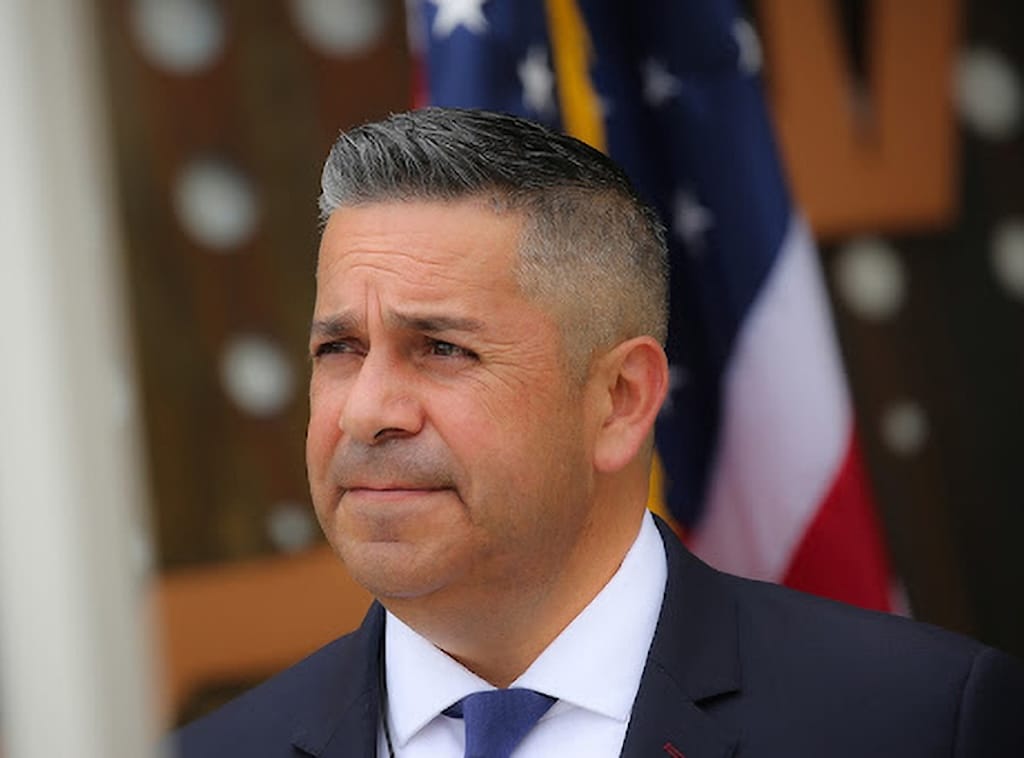Senators Propose FAA Reauthorization Amendment to Fund ACP
The last of the low-income internet subsidy's cash is set to run out this month.
Jake Neenan

WASHINGTON, May 7, 2024 – A bipartisan group of senators is working to attach to the Federal Aviation Administration reauthorization bill an amendment that would infuse the Affordable Connectivity Program with $6 billion.
In addition to shoring up the fund, the amendment filed Tuesday would tighten the program’s eligibility requirements. The threshold for income would be reduced to 135 percent of the federal poverty line, down from the current 200 percent, and households receiving free school meals through the USDA’s Community Eligibility Provision would no longer be eligible for the benefit. Participants would also have to be verified by the Federal Communications Commission’s eligibility database.
Those are the kinds of concessions Republican leaders had hoped to see before allowing the ACP to continue. They’ve consistently expressed skepticism about wastefulness in the program, with Senate Commerce Committee Ranking Member Ted Cruz, R-Texas, reiterating the position at a hearing last week. Dozens of rank-and-file GOP representatives signed on to a House bill to extend the program, but Speaker Mike Johnson, R-Louisiana, has refused to allow a floor vote.
The program is otherwise broadly popular, with support from consumer advocates, lawmakers on both sides of the aisle, and the broadband industry.
The reauthorization must make it out of the chamber this week if the House is to hold a vote before the FAA’s authorization expires on May 10. It’s possible the agency’s remit could be given a short-term extension if lawmakers can’t hammer out the full five-year reauthorization bill in time.
A monthslong campaign to prevent the program from drying up has so far proved unsuccessful, and Tuesday’s amendment comes with weeks to spare. April was the last month in which ACP households received the program’s full $30 benefit, and the last of the remaining money will be exhausted on smaller $14 discounts in May.
The program currently serves 23 million low-income households. The amendment would allow any of those who would not qualify under its new criteria to remain enrolled until the FCC recertifies their eligibility, potentially more than a year. The agency would have to update its ACP rules within 180 days and recertify subscribers' eligibility within 240 days of the update.
“This amendment demonstrates that Congress can put politics aside. The Senate should move quickly so this extremely popular program can continue,” Gigi Sohn, executive director of the American Association for Public Broadband, said in a statement.
Led by Sen. Ben Ray Luján, D-New Mexico, the amendment is also backed by J.D. Vance, R-Ohio, Peter Welch, D-Vermont, Roger Wicker, R-Mississippi, Steve Daines, R-Montana, and Jacky Rosen, D-Nevada.
The proposal would also nix the ACP’s one-time $100 device discount and require the FCC to stand up anti-fraud and performance measures. It would provide an additional $3 billion for the rip and replace program and require the FCC to auction within two years the AWS-3 bands and any other spectrum bands that have been returned to the agency – regardless of whether its auction authority gets reinstated in that time.
Luján is also leading a bipartisan, bicameral working group to reform the Universal Service Fund, another subsidy program managed by the FCC, and is looking to fold the ACP into that program. The USF is funded by fees on voice providers, a scheme that the working group was convened in part to update, but the model represents a more long-term solution than congressional appropriations for keeping the ACP afloat.
The Biden administration was also relying on the ACP to bolster the $42.5-billion broadband expansion effort stood up alongside it. The Broadband Equity, Access and Deployment program’s affordability requirements were drawn up with the subsidy in mind, as it makes households in the rural areas targeted by BEAD more likely to get and stay subscribed – in turn making a better business case for providers to build out networks according to industry analysts.








